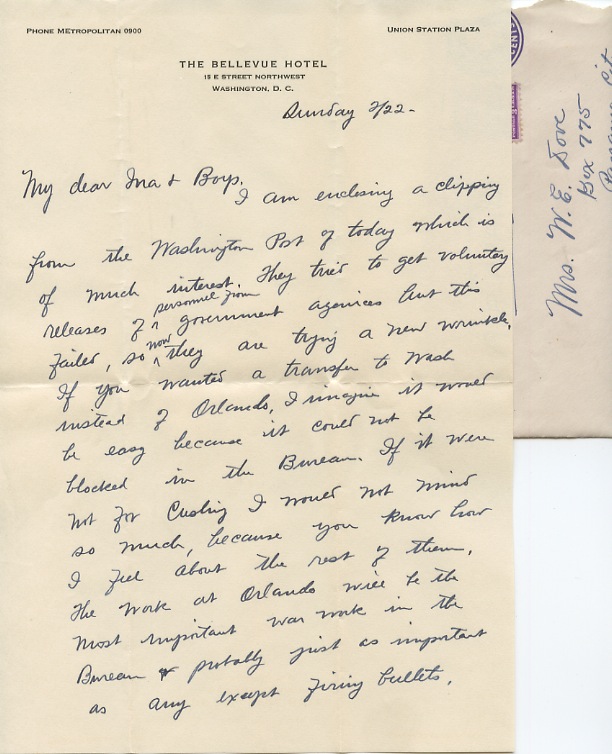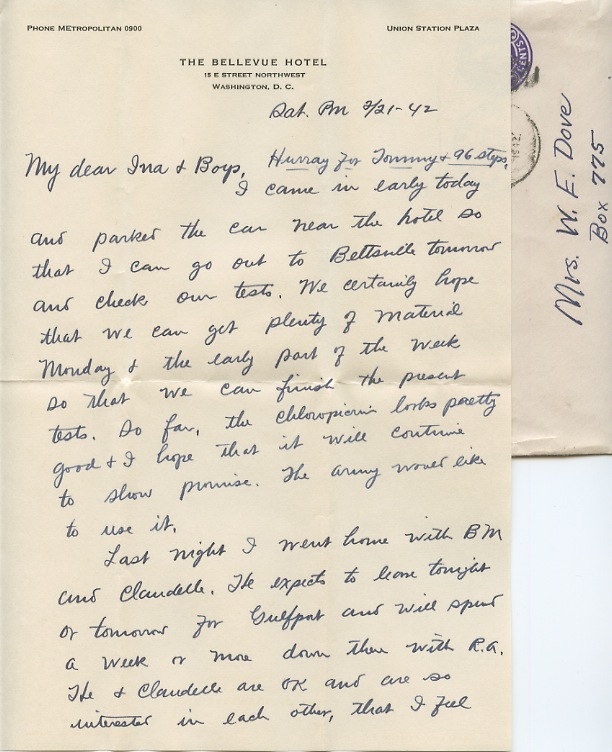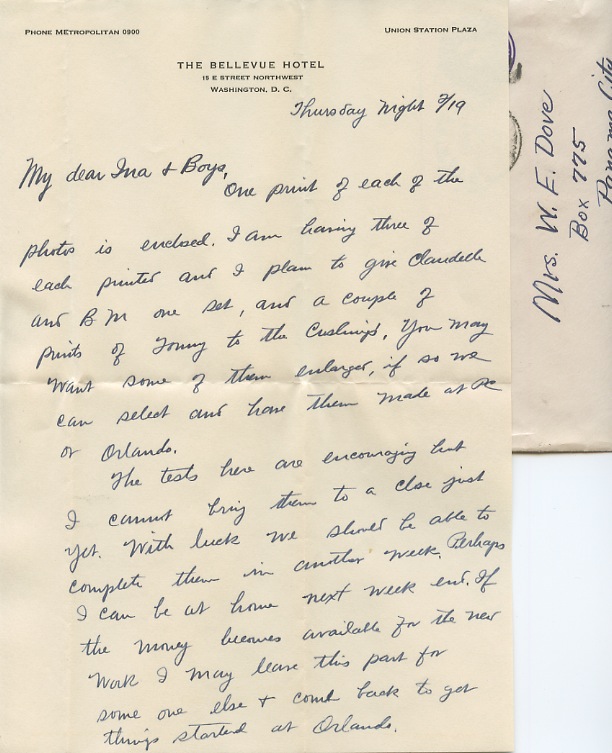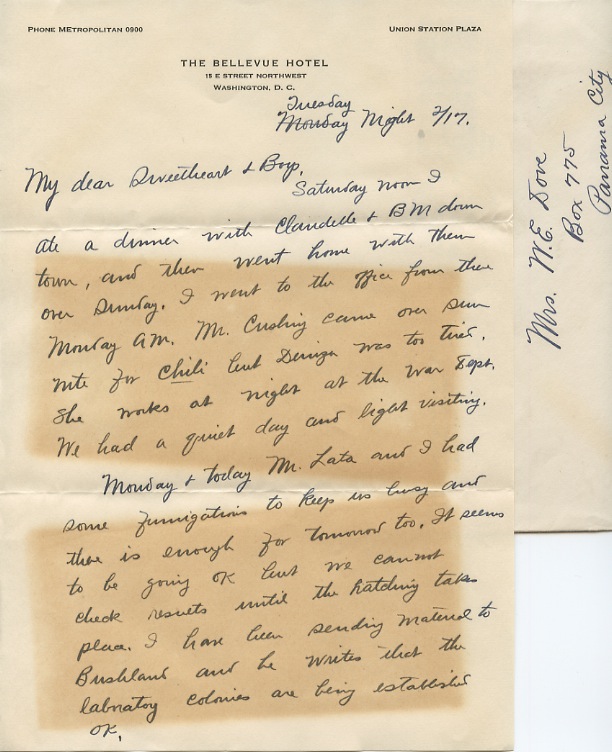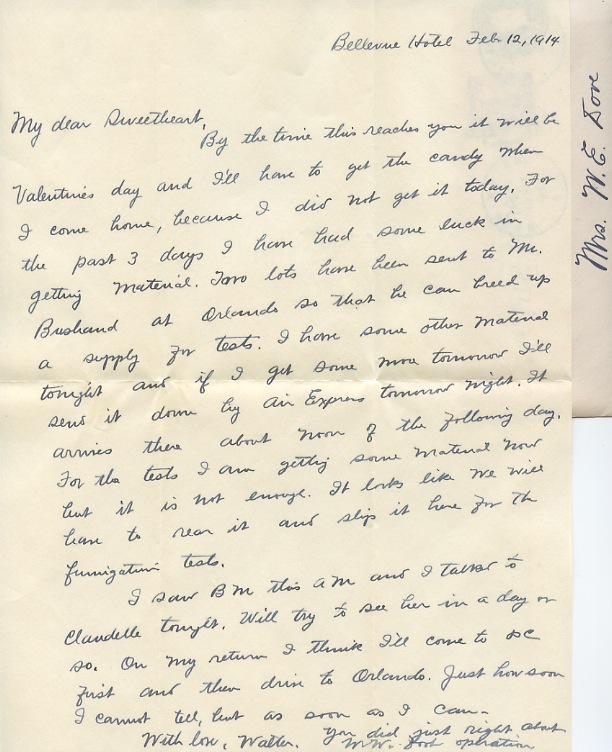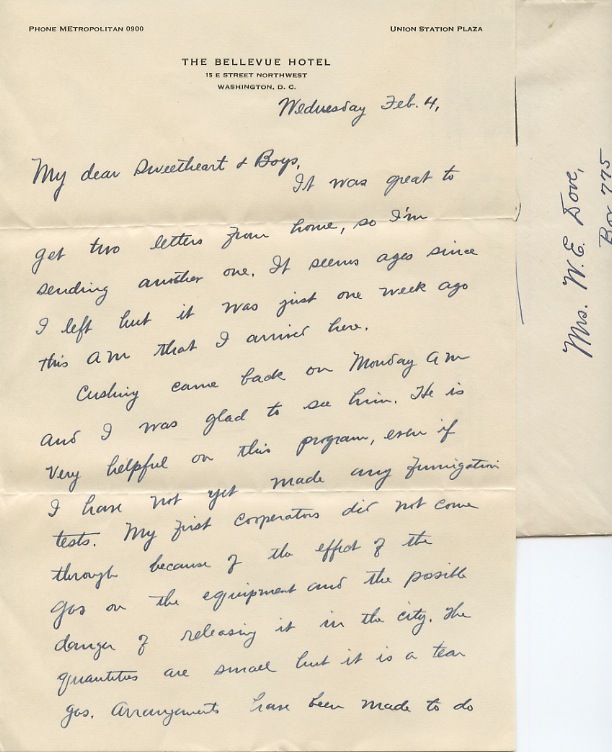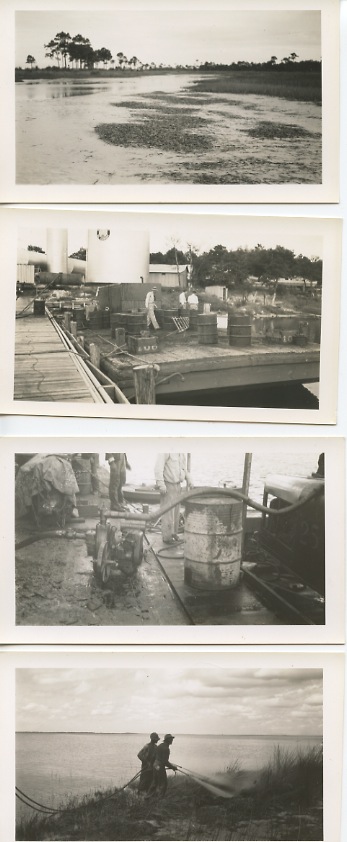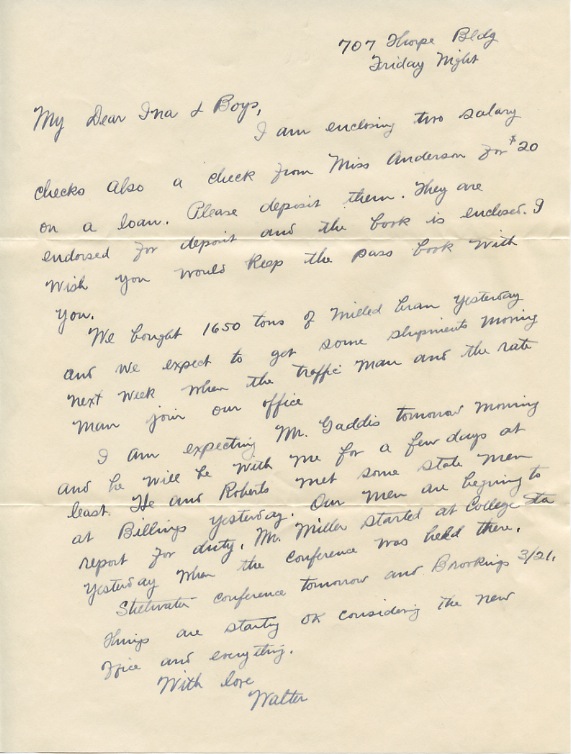Sunday 2/22.
My dear Ina & Boys,
I am enclosing a clipping from the Washington Post of today which is of much interest. They tried to get voluntary releases of personnel from government agencies but this failed, so now they are trying a new wrinkle. If you wanted a transfer to Wash. instead of Orlando, I imagine it would be easy because it could not be blocked in the Bureau. If it were not for Cushing I would not mind so much, because you know how I feel about the rest of them. The work at Orlando will be the most important war work in the Bureau & probably just as important as any except firing bullets.*
I kept the sedan delivery here today but I did not go out to Beltsville. It has been real cold yesterday & today and it was not especially urgent that I go over the fumigated material until tomorrow. I hope I can get away about the end of the week but cannot tell yet. I want to get the answer if I can by that time.
If you have any strong convictions about transferring, please let me know. After the war it may be difficult to get into other govt work which might mean taking the retirement. It would amount to about $150 per month at present. After about 6 yrs more or 30 yrs service would amount to about $200 per mo. I doubt if I could leave the Bureau before about 6 yrs. By that time we may be in the middle of another depression & it would be difficult to get started in something else.
With love,
Walter.
P.S. Think I’ll talk to the Public Health Service. Theirs should be permanent.
* Walter is not bragging. Louse-borne typhus was deadlier than any weapon in World War I, and all indications were that it would take a similar toll in this war. An army that could prevent and/or treat louse infestations would have an immense advantage over one that couldn’t.

